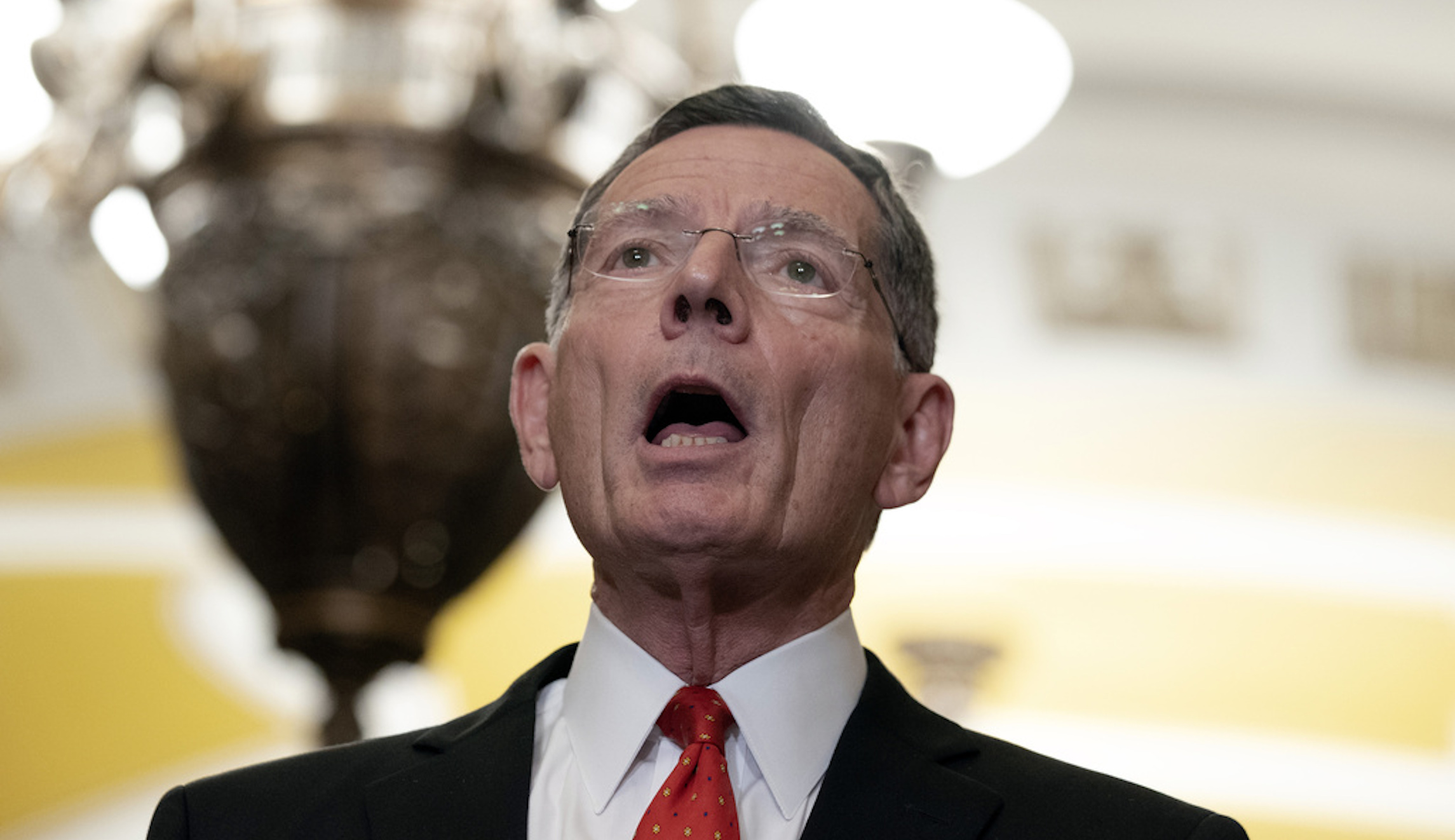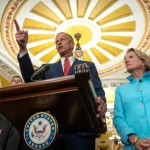

Senate Republican Conference Chairman John Barrasso (R-WY) will convene a meeting of his GOP colleagues on Wednesday as the party fractures on whether to embrace a bipartisan border security deal currently in the works.
Barrasso, the No. 3 Senate Republican, organized the summit at the request of 15 GOP senators who have expressed skepticism about combining border measures with assistance bills for Ukraine, Taiwan, and Israel. The group plans to raise their concerns about being able to secure a deal that includes legitimate, meaningful border policy changes.
Barrasso, who has been one of the Senate’s leading border hawks since Biden took office, welcomed the request for a meeting on the topic, a source familiar told the Washington Examiner.
The Wyoming senator is a co-sponsor of the Senate’s version of H.R. 2, House Republicans’ signature border bill, and has been lobbying support for the bill among his colleagues since March 2021. He has also made three trips to the southern border since 2021 and uses his time at weekly leadership conferences to highlight the record numbers of illegal migrant crossings.
The vast majority, if not all, of the Senate GOP conference is in favor of Israel aid. The same cannot be said for Ukraine’s assistance. While more than half of the 49 Republicans support some type of continued aid to Ukraine, there is a vocal part of the conference that strongly opposes such measures.
As a result, GOP senators are disputing whether Israel aid should be separated from a larger bill to allow members who support that effort but oppose Ukraine funding to vote for it. Republicans are also debating how to approach the bipartisan border negotiations, which will be the primary topic of Wednesday’s meeting.
A bipartisan working group of senators has spent over a month negotiating a border security deal, which would be added to a defense spending bill that includes aid for Ukraine, Israel, and Taiwan. Negotiators on both sides have acknowledged that the border measure is critical to passing the legislation through both chambers.
Senate Minority Leader Mitch McConnell (R-KY), who has been Ukraine’s staunchest GOP ally since Russia launched its war last February, has said he supports the larger supplemental bill as long as it includes “credible” border policy changes.
Sens. James Lankford (R-OK) and Chris Murphy (D-CT) have been leading the negotiations, which have centered largely on changes to federal asylum policy and how the Biden administration uses the humanitarian parole authority. Sen. Kyrsten Sinema (I-AZ) has also been heavily involved in the talks.
There have also been reports that the White House has offered to establish a new border expulsion law and increase mandatory detention rates as part of the negotiations, though no one from the Senate working group or the Biden administration has confirmed as much publicly.
Lankford is expected to brief his Republican colleagues on the status of talks at the start of the meeting, which will take place at 3:30 p.m. local time. Members will then be able to ask questions and voice their concerns about the legislation or the border.
Sen. Eric Schmitt (R-MO), one of the 15 Republicans who requested the meeting, cautioned that without legislative text to look over, there isn’t much that Lankford can say to address his concerns.
“We’re going to have to review the language,” Schmitt told the Washington Examiner on Tuesday, adding that Lankford and Republicans have “got to be willing to walk away from the negotiating table if [they’re] not going to get a good deal.”
CLICK HERE TO READ MORE FROM THE WASHINGTON EXAMINER
Sen. Kevin Cramer (R-ND) told the Washington Examiner that he expected the GOP to remain united on policy and strategy in terms of the border issue and said he felt assured that GOP leadership would block a supplemental that lacked adequate policy changes.
“The leverage points are different for everybody,” Cramer explained. “You have some people who oppose Ukraine, period. Anything that includes that, they just make it more difficult to vote for, not easier. There are some people, probably more, that want to support Ukraine and certainly want to support Israel and will do that regardless. I don’t think there’s ever a time when we’ll have more leverage than we have right now to get border security issues.”







